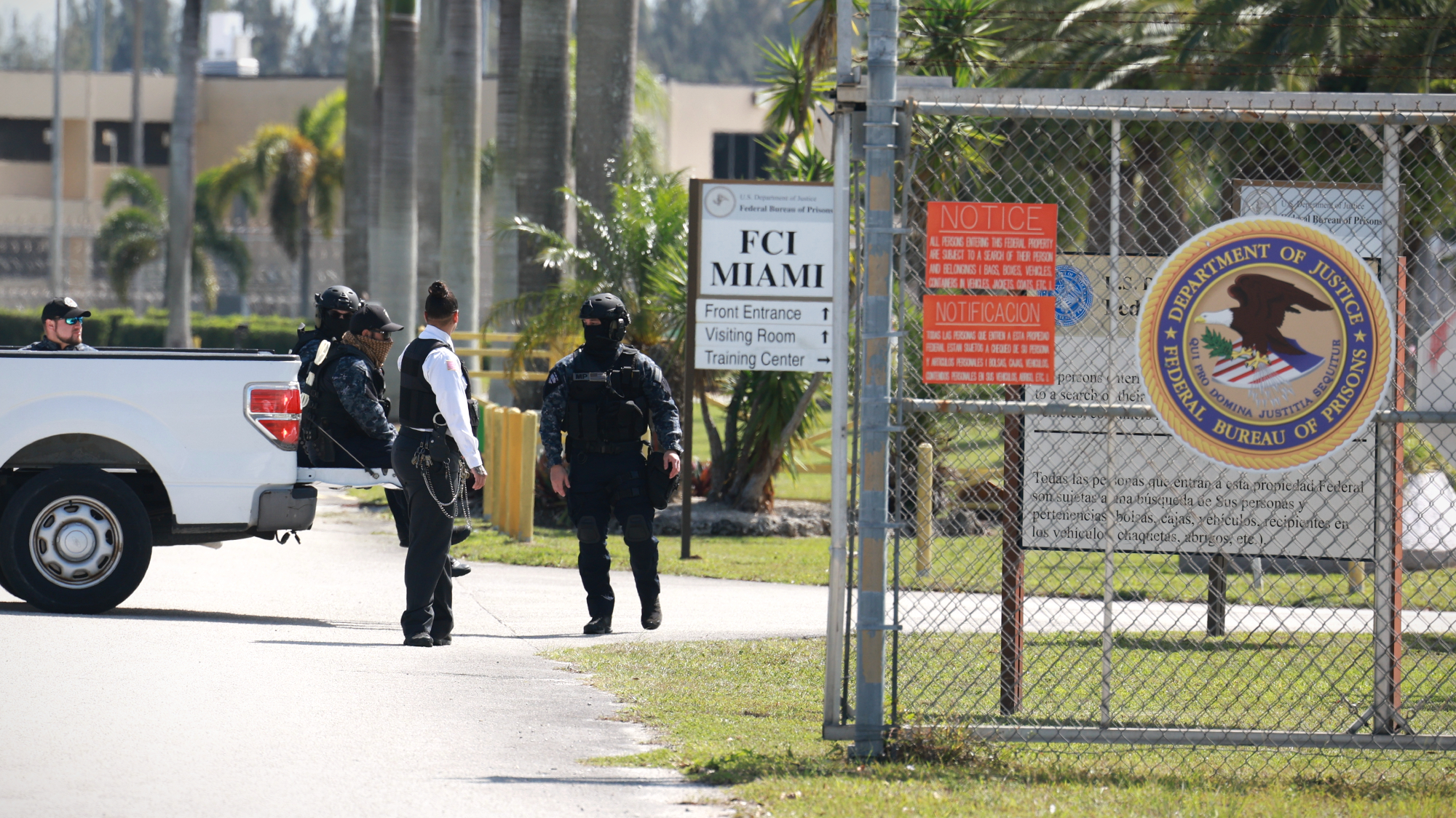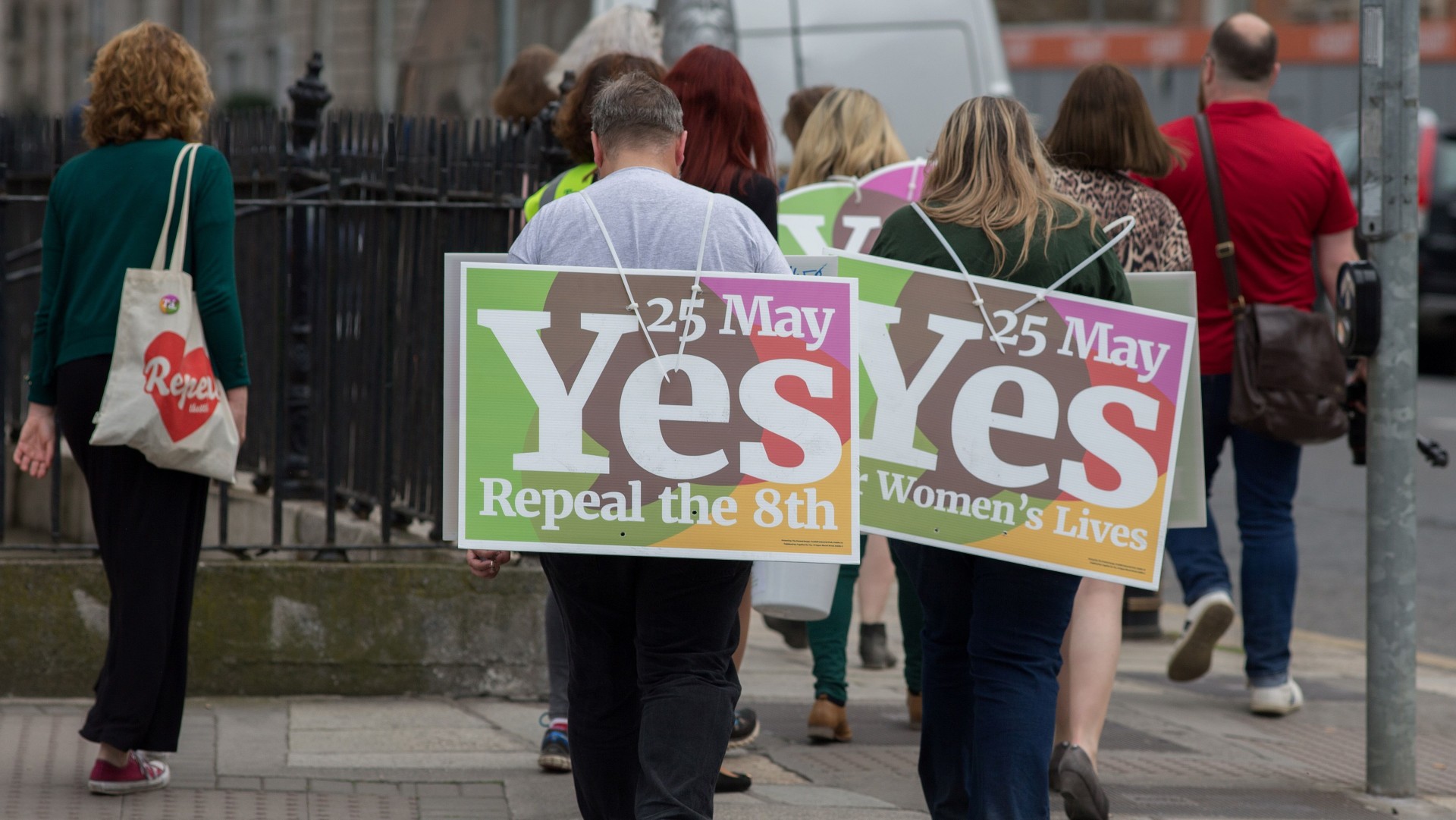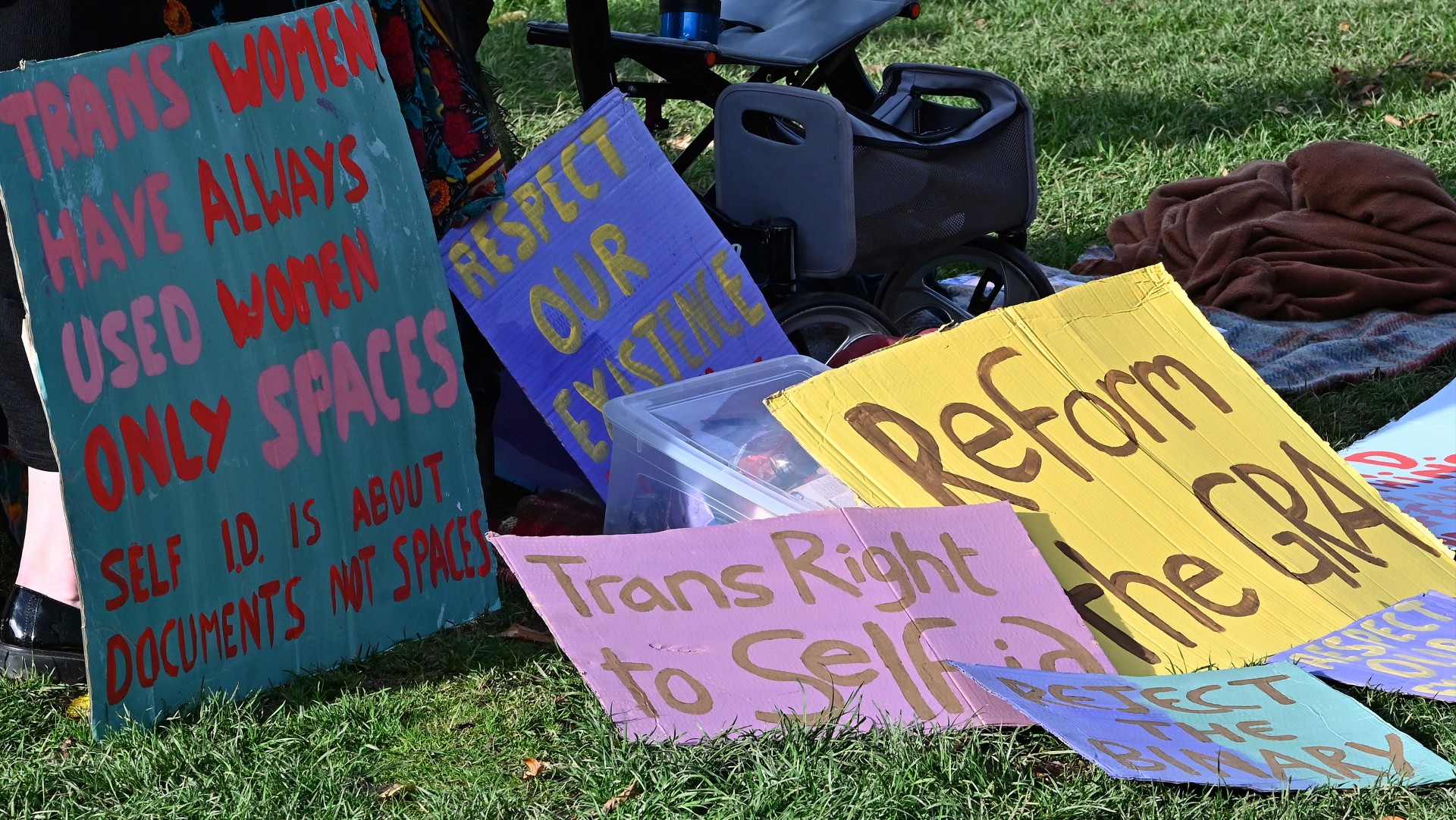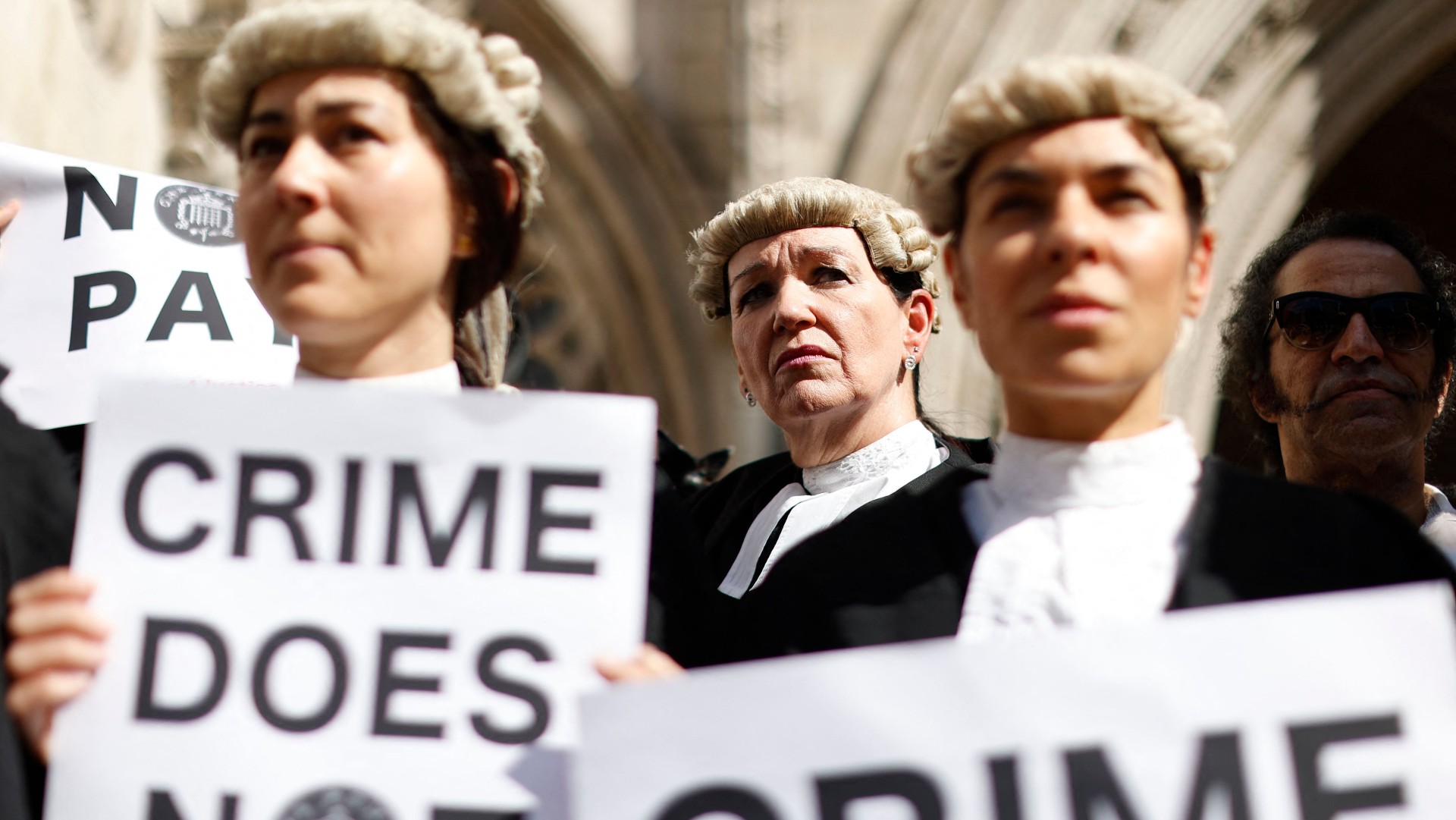What’s causing the ‘chaos’ in the UK criminal justice system?
Shortage of prison cells and real-terms pay cut for solicitors has increased talk of ‘crisis’

A free daily email with the biggest news stories of the day – and the best features from TheWeek.com
You are now subscribed
Your newsletter sign-up was successful
The government and legal profession are at loggerheads over what or who is to blame for a “crisis” in the UK criminal justice system.
Hundreds of police cells will be used to temporarily hold inmates after an “acute and sudden increase” in the prison population. The Ministry of Justice has requested the temporary use of up to 400 police cells to stop prison places from running out – the first time in 14 years that the emergency measure has been taken.
The news emerged on the day solicitors accused Dominic Raab, the justice secretary, of imposing a “real-terms” pay cut for legal aid work, warning this would lead to “chaos” in the justice system, according to the Law Gazette.
The Week
Escape your echo chamber. Get the facts behind the news, plus analysis from multiple perspectives.

Sign up for The Week's Free Newsletters
From our morning news briefing to a weekly Good News Newsletter, get the best of The Week delivered directly to your inbox.
From our morning news briefing to a weekly Good News Newsletter, get the best of The Week delivered directly to your inbox.
What did the newspapers say?
Speaking to MPs, the prisons minister Damian Hinds said a “highly unusual” flood of around 800 prisoners was the result of a backlog of court cases at the end of the barristers’ strike last month leading to a “surge” in new offenders joining the remand population.
However, Kirsty Brimelow KC, chair of the Criminal Bar Association, told The Independent that the number of prisoners on remand was “already at a 14-year high before barristers started industrial action”. She blamed the case backlog on government funding cuts.
Labour agreed that the “prisons crisis” was caused by austerity cuts made by the government, said The Times. Steve Reed, the shadow justice secretary, told the paper: “Despite reports of rape and sexual offences hitting record highs, the Conservatives cut more than 10,000 prison places since 2010.”
Meanwhile, said the Law Society, Raab’s cut to legal aid “will bring chaos to criminal justice”. The justice secretary has “completely rejected” the advice of his government’s own independent review by “imposing a real-terms cut on legal aid rates for solicitors”, it said.
A free daily email with the biggest news stories of the day – and the best features from TheWeek.com
“Until the government chooses to address the crisis in the criminal justice system, victims will continue to be let down, court delays will increase and talk of being tough on crime will be nothing but empty words,” Lubna Shuja, president of the Law Society of England and Wales, said.
“We have a broken justice system in this country and criminals know it,” said Patrick Christys on GB News. “As long as criminals, especially dangerous sex criminals, know that if they commit a crime, they probably won’t get caught and they probably won’t go to court”, he argued, “then they’re going to keep doing it”.
What next?
“Every part of the legal process, from the police to the courts, is in crisis,” said the Secret Barrister in The Sunday Times, adding that “the criminal justice system is not merely close to breaking point; it is broken”.
They proposed a seven-point plan, including rebuilding the courts system after the government closed or sold more than half of court buildings between 2010 and 2020.
They also suggested the “right to a timely trial”, with a fixed date “which will be kept, no ifs, no buts”. Investment in the future was also vital, they wrote, as “appalling pay and conditions are forcing junior solicitors and barristers out of the profession”.
Politicians must “end the pretence that the only thing needed to fix criminal justice is ‘tougher prison sentences’”, they said and MPs should “abandon headline-chasing gimmicks in favour of evidence-based policy”.
The Tories have “broken Britain’s justice system”, Shadow Justice Secretary Reed wrote in The New Statesman in September. He vowed that a Labour government would “make the criminal justice system work from end-to-end to prevent and punish crime, while protecting victims”.
He pledged that Labour would “make prison work” by “supporting staff to reduce reoffending rates”, introduce new neighbourhood police hubs to “crack down on crime and antisocial behaviour” and deliver the world’s first “trauma-informed” criminal justice system, which will “focus our courts and prisons on tackling” the effect childhood trauma has on offenders, thus breaking the “cycle of crime for good”.
There has also been a call for more scrutiny from the media. “Unfortunately, the inevitable consequence of a broken criminal justice system… is that some people will be wrongfully convicted,” wrote Jon Robins for The Conversation.
Noting that national press coverage of miscarriages of justice has “notably decreased”, he argued that “the wrongly convicted are not only being let down by the broken justice system… they are being failed by a media that has lost interest and moved on”.
Chas Newkey-Burden has been part of The Week Digital team for more than a decade and a journalist for 25 years, starting out on the irreverent football weekly 90 Minutes, before moving to lifestyle magazines Loaded and Attitude. He was a columnist for The Big Issue and landed a world exclusive with David Beckham that became the weekly magazine’s bestselling issue. He now writes regularly for The Guardian, The Telegraph, The Independent, Metro, FourFourTwo and the i new site. He is also the author of a number of non-fiction books.
-
 The ‘ravenous’ demand for Cornish minerals
The ‘ravenous’ demand for Cornish mineralsUnder the Radar Growing need for critical minerals to power tech has intensified ‘appetite’ for lithium, which could be a ‘huge boon’ for local economy
-
 Why are election experts taking Trump’s midterm threats seriously?
Why are election experts taking Trump’s midterm threats seriously?IN THE SPOTLIGHT As the president muses about polling place deployments and a centralized electoral system aimed at one-party control, lawmakers are taking this administration at its word
-
 ‘Restaurateurs have become millionaires’
‘Restaurateurs have become millionaires’Instant Opinion Opinion, comment and editorials of the day
-
 The age of criminal responsibility
The age of criminal responsibilityThe Explainer England and Wales ‘substantially out of kilter with the rest of the world’, says filmmaker whose drama tops Netflix charts
-
 How far does religious freedom go in prison? The Supreme Court will decide.
How far does religious freedom go in prison? The Supreme Court will decide.The Explainer The plaintiff was allegedly forced to cut his hair, which he kept long for religious reasons
-
 Congress OKs greater prisons oversight
Congress OKs greater prisons oversightSpeed Reads The legislation came after reporting from The Associated Press exposed corruption in the prison system
-
 Will South Africa's genocide case against Israel stop war in Gaza?
Will South Africa's genocide case against Israel stop war in Gaza?Today's Big Question The claim is 'tightly argued' but ICJ's rulings are often ignored
-
 Whole-life sentences: when life in prison actually means life
Whole-life sentences: when life in prison actually means lifefeature Lucy Letby becomes only fourth woman in UK to receive country’s harshest penal punishment
-
 Repeal the Eighth: how have abortion services changed in Ireland five years on?
Repeal the Eighth: how have abortion services changed in Ireland five years on?Today's Big Question Report finds access is still limited and unequal, but proposed legislation changes may be delayed
-
 Battle of Britain: will Rishi Sunak block Scotland’s gender recognition law?
Battle of Britain: will Rishi Sunak block Scotland’s gender recognition law?Today's Big Question Prime minister reportedly set to use constitutional ‘nuclear option’ in showdown with Holyrood over the legislation
-
 Should criminal barristers be allowed to strike?
Should criminal barristers be allowed to strike?Talking Point Prolonged dispute over cuts to pay and legal aid has led to indefinite walkout in September